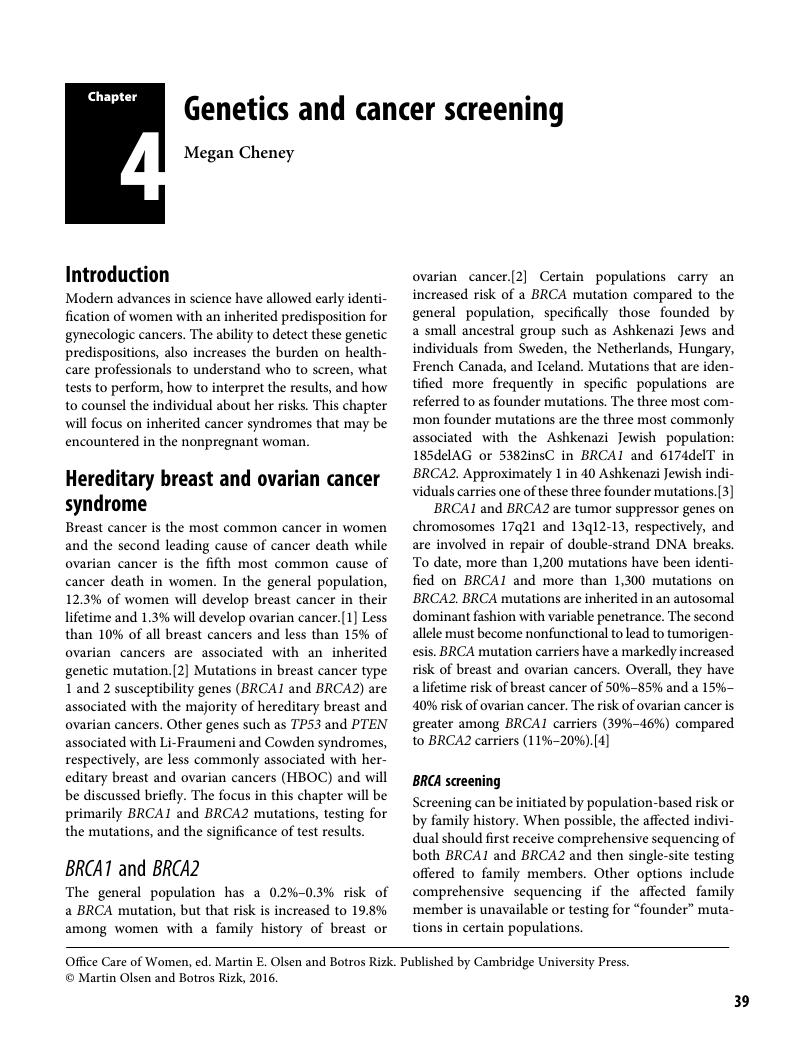Book contents
- Office Care of Women
- Office Care of Women
- Copyright page
- Dedication
- Contents
- Contributors
- Preface
- Section I Health promotion
- Chapter 1 Preventive health care
- Chapter 2 Contraception
- Chapter 3 Lactation
- Chapter 4 Genetics and cancer screening
- Section II Office interventions
- Section III Pregnancy
- Section IV Gynecology
- Section V Reproductive endocrinology and infertility
- Section VI Nongynecologic conditions
- Index
- References
Chapter 4 - Genetics and cancer screening
from Section I - Health promotion
Published online by Cambridge University Press: 05 May 2016
- Office Care of Women
- Office Care of Women
- Copyright page
- Dedication
- Contents
- Contributors
- Preface
- Section I Health promotion
- Chapter 1 Preventive health care
- Chapter 2 Contraception
- Chapter 3 Lactation
- Chapter 4 Genetics and cancer screening
- Section II Office interventions
- Section III Pregnancy
- Section IV Gynecology
- Section V Reproductive endocrinology and infertility
- Section VI Nongynecologic conditions
- Index
- References
Summary

- Type
- Chapter
- Information
- Office Care of Women , pp. 39 - 48Publisher: Cambridge University PressPrint publication year: 2016

